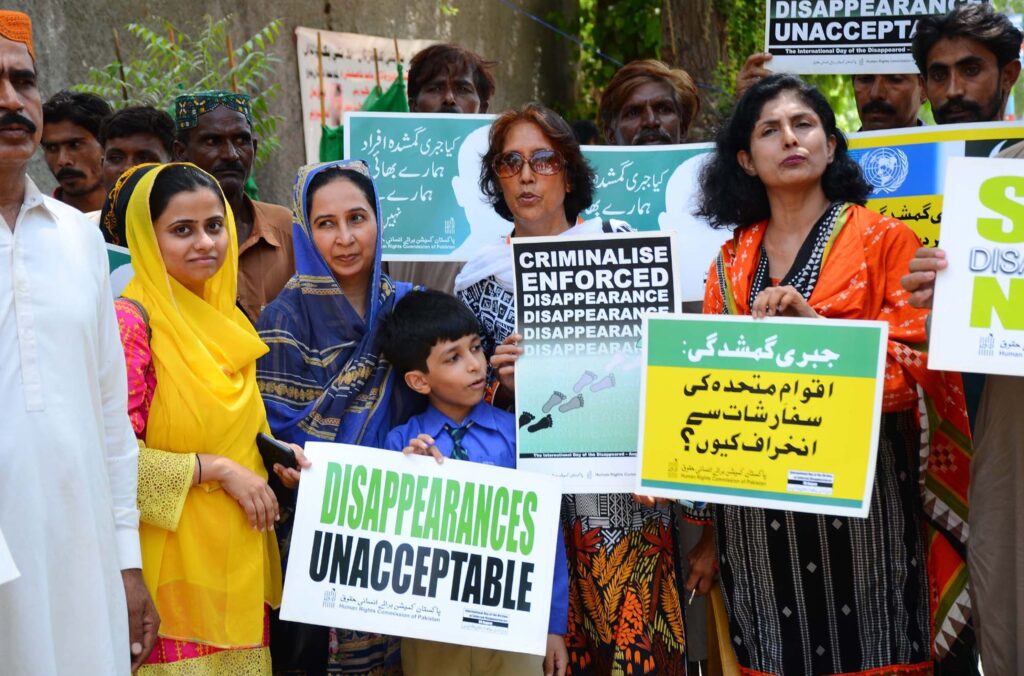Lieutenant General Asim Malik has become the second most powerful person in Pakistan (after the Army Chief) following his appointment as the new head of the country’s spy agency, Inter-Services intelligence (ISI).
Malik, who is currently serving as adjutant general at Pakistan Army Headquarters, will assume his new office from September 30.
He is replacing Lt. Gen. Nadeem Anjum, who has been serving as the ISI director general since November 2021. ISI chiefs are usually appointed for a three-year term.
During the course of his military career, Gen Malik has served in the Balochistan infantry division and commanded the infantry brigade in Waziristan, PTV News said.
Gen Malik has also served as the chief instructor at the National Defence University in Islamabad and as an instructor at the Command and Staff College Quetta.
The military officer is a graduate of Fort Leavenworth in the United States and Royal College of Defence Studies in London, the statement added.
The Inter-Services Intelligence (ISI) is Pakistan’s premier intelligence agency and plays a critical role in the country’s defence and security.
Subscribe to our newsletter and stay updated on the latest news and updates from around the Muslim world!
Established in 1948, a year after Pakistan’s independence, the ISI was created to coordinate intelligence activities among the various branches of the armed forces, particularly the Army, Navy, and Air Force.
The ISI’s primary duties include intelligence gathering, counterintelligence, and safeguarding Pakistan’s national interests both domestically and internationally.
Its key areas of focus include:
- Counterterrorism: The ISI is heavily involved in combating “terrorism and extremist activities.”
- Foreign Intelligence: It monitors foreign nations and non-state actors that could pose threats to Pakistan’s security, especially regarding India.
- Internal Security: The ISI also works within Pakistan to handle matters of domestic security, especially involving internal threats like separatism and insurgency.
- Cybersecurity: In recent years, the agency has focused on cyber surveillance and protecting Pakistan from digital threats.
While technically under civilian oversight, the ISI is often viewed as having significant autonomy, and its close ties to the military have led to perceptions of it being one of the most powerful institutions in Pakistan.

The ISI has also often been a subject of controversy, both domestically and internationally. In Pakistan, many see the ISI as a protector of national interests, while critics argue that its influence undermines democratic institutions and civilian authority.
The West has criticised the agency for supporting various groups fighting in Kashmir and previously in Afghanistan, as part of Pakistan’s strategic depth policy.
Domestically, it has been accused of influencing political processes in Pakistan, including supporting military coups and manipulating elections. Its alleged involvement in undermining civilian governments has been a significant point of contention.
Another source of controversy is the ISI’s alleged role in “disappearing” people in Pakistan. These enforced disappearances involve individuals being taken into custody without legal proceedings, their whereabouts being kept secret from their families, and no formal charges being made against them.
The province of Balochistan has been a major hotspot for enforced disappearances. Baloch nationalist groups have long demanded greater autonomy or independence, and the Pakistani state, in response, has conducted counterinsurgency operations. Many activists, students, political figures, and suspected militants from Balochistan have been forcibly disappeared.
Following the U.S. invasion of Afghanistan in 2001 and Pakistan’s involvement in the War on Terror, many individuals in the tribal areas (Khyber Pakhtunkhwa and FATA) were detained without trial. These regions, known for their tribal dynamics and proximity to Afghanistan, became centres for counterterrorism operations, leading to numerous enforced disappearances of those suspected of links to terrorist groups.
Individuals associated with “militant religious groups” or accused of involvement in sectarian violence have also been subjected to enforced disappearances. In these cases, the state argues it is acting to suppress extremism, though due process is often bypassed.
Over the years, human rights activists, journalists, and members of opposition political groups have also been targeted. Some of these individuals have been involved in criticising the military’s role in politics, advocating for human rights or exposing corruption.
The phenomenon of enforced disappearances has been condemned both domestically and internationally. Human rights organizations, including Amnesty International, Human Rights Watch, and the Human Rights Commission of Pakistan (HRCP), have called for accountability and transparency. They argue that these disappearances violate basic human rights, such as the right to a fair trial, the right to life, and protection from torture and ill-treatment.
In response to mounting pressure, Pakistan’s government has occasionally acknowledged the issue of enforced disappearances, but investigations are often slow or inconclusive. The Supreme Court of Pakistan has taken up cases of missing persons, demanding explanations from the authorities.
A Commission of Inquiry on Enforced Disappearances was established, but critics argue it has done little to hold those responsible accountable or bring justice to victims.






![The History of Sylhet and British Bangladeshis [Short Film]](https://5pillarsuk.com/wp-content/uploads/2024/11/IMG_3518-218x150.png)














